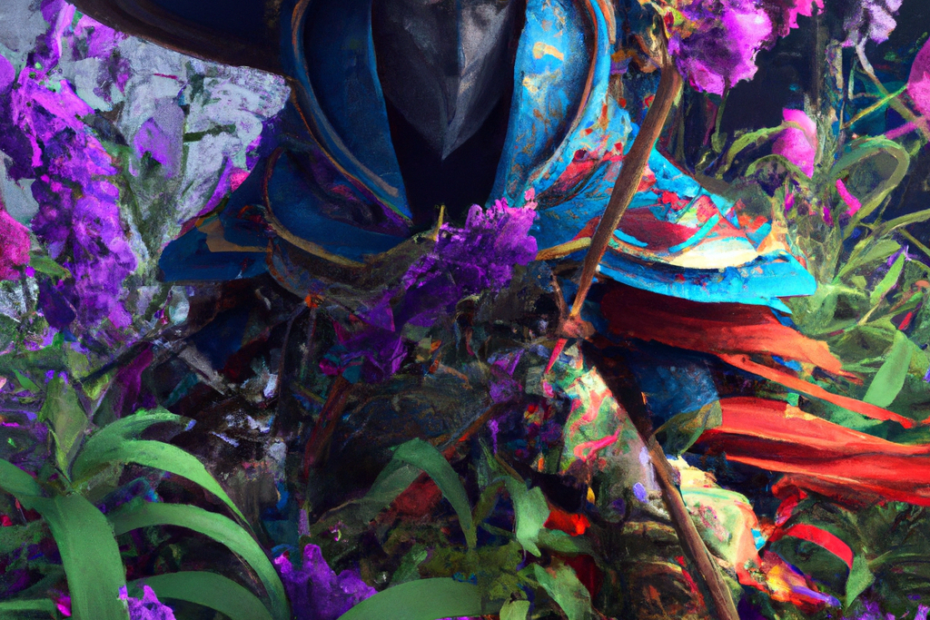Salvia, a potent plant known for its psychoactive effects, has sparked debates and discussions around its legality in various states, including Illinois. In this comprehensive article, we will delve into the laws and regulations surrounding the possession, cultivation, sale, distribution, and consumption of Salvia in Illinois. We will explore the penalties for violating Salvia laws in the state, shedding light on whether possession is considered a misdemeanor or a felony, the maximum fines, and the potential for jail time. We will also examine the alternatives to Salvia in Illinois and the risks associated with its use.
If you’re seeking clear, concise information about Salvia’s legal status in Illinois, as well as the scope of its regulations and the potential consequences of non-compliance, this article aims to provide you with the comprehensive insights you need.
What is Salvia?
Salvia, also known as Salvia divinorum, is a legal psychoactive plant with mind-altering properties.
Belonging to the mint family, Salvia is native to southern Mexico and has been traditionally used by Mazatec shamans for spiritual and healing purposes. It is characterized by its hallucinogenic effects, often inducing intense but short-lived experiences. Despite its psychoactive qualities, Salvia has a complicated legal status, with varying regulations in different countries and regions. It is typically consumed through smoking or chewing the leaves, and its use is restricted or prohibited in several jurisdictions due to concerns over its potent hallucinogenic effects.
Where is Salvia Legal?
The legal status of Salvia varies among different states, with specific laws and regulations governing its possession, cultivation, sale, and distribution.
Is Salvia Legal in Illinois?
The legality of Salvia in Illinois is defined by specific state laws, regulations, and restrictions that determine its permissible uses and activities within the state.
Salvia is classified as a Schedule I controlled substance in Illinois, making its possession, cultivation, sale, and distribution illegal. The Illinois Controlled Substances Act explicitly lists Salvia divinorum and its active ingredient, salvinorin A, as prohibited substances. Therefore, individuals are prohibited from growing, selling, or possessing Salvia for any purpose, including personal or recreational use.
Violating these laws can result in severe legal consequences, including fines and potential imprisonment. It’s essential for residents to understand these regulations and comply with the state laws regarding the use and distribution of Salvia.
What are the Laws and Regulations for Salvia in Illinois?
Illinois has specific laws and regulations that govern the possession, cultivation, sale, and distribution of Salvia within the state.
Is Salvia Possession Legal in Illinois?
The legality of Salvia possession in Illinois is subject to specific state laws and regulations that outline the permissible activities and limitations regarding its ownership and use.
Salvia falls under the category of controlled substances in Illinois, with its possession, sale, and distribution regulated by the Illinois Controlled Substances Act. According to this act, it is illegal to knowingly possess, manufacture, deliver, or possess with intent to deliver Salvia, its active principle, or any of its derivatives.
The penalties for violating these laws can range from fines to imprisonment, depending on the amount of Salvia involved and the individual’s prior criminal record. It’s crucial for individuals in Illinois to be aware of these legal provisions to ensure compliance and avoid legal repercussions.
Is Salvia Cultivation Legal in Illinois?
The cultivation of Salvia in Illinois is governed by specific state laws and regulations that delineate the permissible activities and restrictions related to its growth and propagation.
Under Illinois law, individuals interested in cultivating Salvia must adhere to the guidelines set forth by the Illinois Department of Agriculture. These regulations include obtaining the necessary licenses and permits, adhering to specific cultivation practices, and adhering to restrictions on the sale and distribution of Salvia plants. It is essential to stay updated on any revisions or changes in the legal framework to ensure compliance with the evolving laws governing Salvia cultivation in the state.
Is Salvia Sale and Distribution Legal in Illinois?
The sale and distribution of Salvia in Illinois are subject to specific state laws and regulations that define the permissible activities and constraints associated with its commercial transactions and dispersal.
These regulations govern the age restrictions for the purchase of Salvia, as well as the licensing requirements for vendors and retailers. Illinois law prohibits the sale of Salvia to individuals under 18 years old and strictly regulates the labeling and packaging of Salvia products. It’s important for businesses involved in the sale of Salvia to stay updated on any changes to the state laws and regulations to ensure compliance and avoid potential legal consequences.
Is Salvia Consumption Legal in Illinois?
The legality of Salvia consumption in Illinois is defined by specific state laws and regulations that outline the permissible activities and restrictions regarding its use and ingestion.
These laws aim to govern the cultivation, sale, and possession of Salvia within the state, ensuring public safety and setting boundaries for its utilization. Illinois has classified Salvia as a controlled substance, with laws prohibiting its distribution to individuals under a certain age and imposing penalties for unauthorized sale or possession. Specific regulations dictate where and how Salvia can be sold, emphasizing the importance of compliance with these legal requirements to avoid legal repercussions.
What are the Penalties for Violating Salvia Laws in Illinois?
Violating Salvia laws in Illinois can lead to significant penalties, including fines, imprisonment, and potential felony charges, depending on the nature and severity of the offense.
Is Possession of Salvia a Misdemeanor or Felony in Illinois?
The possession of Salvia in Illinois can lead to categorization as either a misdemeanor or felony, subject to the specific circumstances and the quantity of Salvia involved.
If an individual is found to be in possession of a small amount of Salvia for personal use, it is likely to be classified as a misdemeanor offense, which may result in lighter penalties such as fines, probation, or a short period of imprisonment. If the possession involves a larger quantity or indicates intent to distribute, it could be charged as a felony, leading to more severe consequences such as extended imprisonment, substantial fines, and a permanent criminal record.
The severity of the offense and the potential impact on the individual’s life are critical factors in determining the legal classification of Salvia possession offenses in Illinois.
What is the Maximum Fine for Salvia Possession in Illinois?
The maximum fine for Salvia possession in Illinois is determined by the specific state laws and legal provisions, varying based on the nature and scale of the offense.
In Illinois, the penalties for Salvia possession can range from fines of up to $1,500 for a first offense to $25,000 for subsequent violations. The severity of the fine depends on factors such as the quantity of Salvia involved and any prior criminal record.
Possession of Salvia is considered a Class B misdemeanor for first-time offenders, while subsequent offenses may lead to more serious legal repercussions. It is essential for individuals to be aware of these consequences and to adhere to the state laws regarding Salvia possession to avoid facing significant fines and legal issues.
Is Salvia Possession Punishable by Jail Time in Illinois?
Salvia possession in Illinois can result in jail time based on the specific legal provisions and penalties outlined by the state laws, considering the severity and circumstances of the offense.
The Illinois law categorizes Salvia as a controlled substance, and its possession without proper authorization is deemed illegal. The severity of the penalties varies depending on factors like the quantity of Salvia found in possession and any prior convictions.
A first offense for Salvia possession in Illinois may result in a misdemeanor charge, potentially leading to imprisonment for up to a year and fines. Subsequent offenses can escalate to felony charges, carrying harsher penalties, including longer prison sentences and heavier fines.
What are the Alternatives to Salvia in Illinois?
In Illinois, there are legal substitutes and alternatives to Salvia that offer comparable experiences and effects without the associated legal implications and restrictions.
Are There Any Legal Substitutes for Salvia in Illinois?
Illinois provides legal substitutes for Salvia, offering alternative options with similar psychoactive properties and effects that comply with state laws and regulations.
These substitutes are carefully curated to align with the regulations set forth by the state authorities. Individuals seeking alternative options can explore varieties that are legally permissible and provide similar experiences to Salvia. By adhering to the state laws and regulations, these alternatives ensure that users can confidently indulge in psychoactive experiences without the risk of legal repercussions.
This availability of legal substitutes provides a responsible and compliant approach for those interested in exploring psychoactive substances in Illinois while respecting the state’s legal framework.
What Are the Risks of Using Salvia in Illinois?
Using Salvia in Illinois presents specific risks and considerations related to its consumption, legality, and compliance with state laws, necessitating informed awareness and understanding of potential implications.
Individuals in Illinois should be mindful of the legal restrictions and potential penalties associated with the use of Salvia. It is essential to note that Salvia is classified as a controlled substance in Illinois, and its possession, distribution, and use without proper authorization can lead to legal consequences.
The consumption of Salvia carries inherent health risks, including hallucinations, disorientation, and potential adverse effects on mental health. In this context, adhering to state regulations and making informed decisions regarding its usage is crucial to avoid legal complications and safeguard personal well-being.
Frequently Asked Questions
Is Salvia legal in Illinois?
Yes, Salvia is currently legal in Illinois for individuals over the age of 18.
What is Salvia?
Salvia is a psychoactive plant that contains the compound salvinorin A, which can induce hallucinogenic effects when consumed or smoked.
Is Salvia safe to use?
The effects of Salvia can be intense and unpredictable, and there is a lack of research on its long-term effects. It is not recommended for recreational use.
Are there any restrictions on Salvia in Illinois?
While Salvia is legal in Illinois, there are restrictions on its sale and possession. It is considered a controlled substance and cannot be sold to individuals under the age of 18.
Can I buy Salvia online in Illinois?
It is illegal to buy Salvia online in Illinois. While it may be legal in the state, many online retailers will not ship to Illinois due to state and federal regulations.
What are the penalties for possessing or selling Salvia in Illinois?
Possession of Salvia is a Class B misdemeanor in Illinois, punishable by up to six months in jail and a fine of up to $1,500. Selling Salvia is a Class A misdemeanor, with a penalty of up to one year in jail and a fine of up to $2,500.
John Marston, a seasoned writer since 2009, has penned hundreds of articles on Salvia Divinorum across the web. As a full-time writer at a prominent online salvia retailer, he continues to contribute valuable insights, combining expertise and passion to unravel the diverse facets of Salvia Divinorum. Beyond his writing, John serves as a budtender in the cannabis industry.




